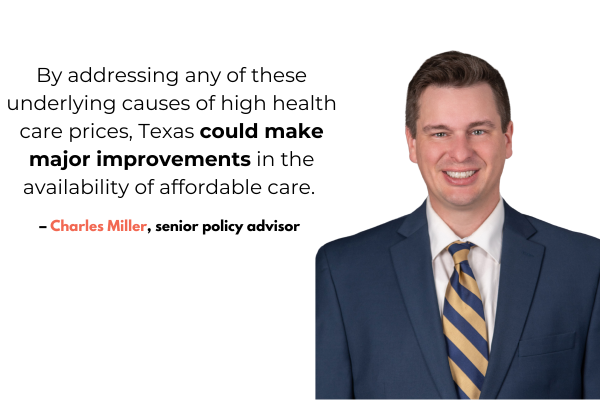This is a preview of our Texas 2036 newsletter highlighting voter attitudes on health care affordability and medical bill fears. To receive this weekly look at our work, sign up here.

More Texans Skipping Care Due to Uncertainty Over Medical Bills
Setting the stage: Originally launched in 2020, our 7th Texas Voter Poll was conducted at the end of August.
- The poll gauges public support for nonpartisan policies and lays out a roadmap for state leaders to strengthen voter confidence and move Texas forward.
Medical bill fears: Texans are telling us in greater numbers that worries over the size of medical bills are leading them to postpone medical care.
- 41% of Texas voters told us they or a household member postponed or skipped treatment or surgery because of uncertainty over what the final price of care might run.
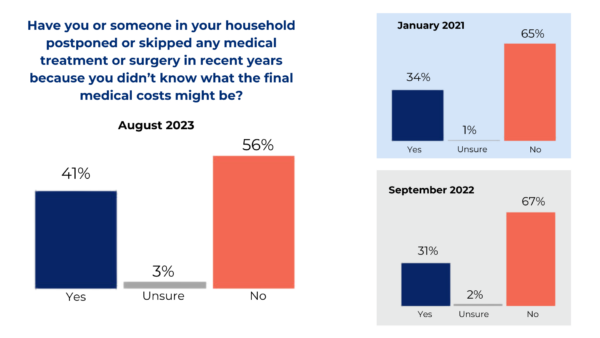
🚨 An additional cause for concern: Fears were especially pronounced among
- 🤰🏻 Mothers — 52% said they or a household member postponed or skipped care
- 👩🏻 Hispanics — 50% said they or a household member postponed or skipped care.
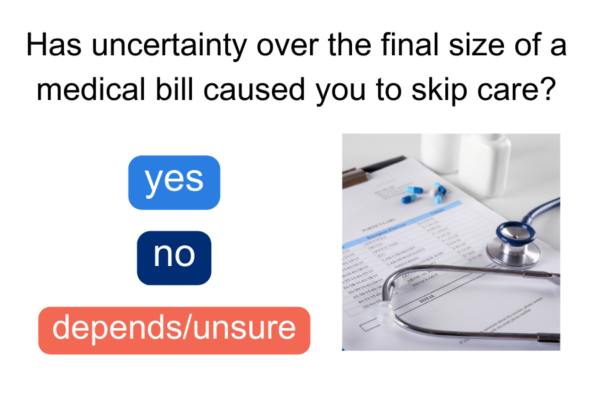
Status quo is unacceptable
Texas voters also made clear their belief that the state needs to move on from the status quo when it comes to addressing consolidation in the health care sector.
- 68% of Texas voters opposed maintaining the status quo while just 18% said they favored doing nothing.


Frustration with the status quo is so high that 51% of Texas voters even said they backed implementing some form of government price control or rate setting.


But not all potential solutions appear popular among Texas voters. Moving toward a single-payer, government run health care system was the second least popular, beating out only doing nothing and maintaining the status quo.


Voters favor action to address high prices caused by health care consolidation
More than 60%: the percentage of Texans who live in a highly or very highly concentrated hospital market, according to a Texas 2036 analysis of data provided by the Health Care Cost Institute.
- 👉 Independent research from health economists has found that consolidation leads to higher prices for health care.
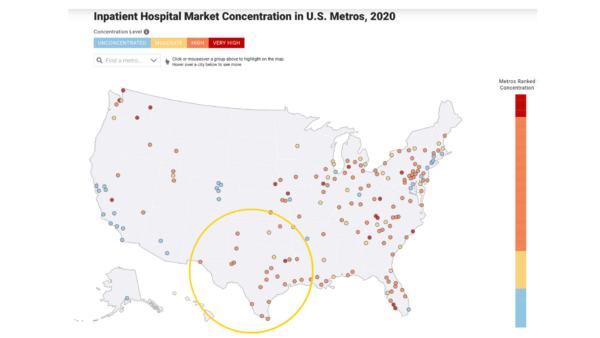
Texas voters told us that this trend toward consolidation in the health care sector concerns them greatly and makes them inclined to back active measures by the government to curb consolidation:
- 53% favored enhanced government antitrust enforcement.
- 52% favored prohibitions on hospital or insurer-owned doctor groups and pharmacies.
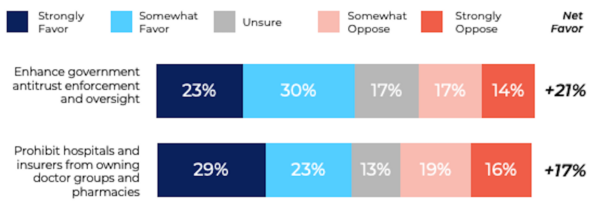
📜 A smashing success from the legislative session: Texas voters also voiced strong support for a newly-passed law that empowers employers to help their employees access lower-cost care by prohibiting many of the anticompetitive practices that have driven up health care costs amid consolidation.
House Bill 711 by Rep. James Frank and Sen. Lois Kolkhorst passed earlier this year with the support of 99% of lawmakers. Texans overwhelmingly support this bill when informed of its intent, with 79% favoring and just 10% opposing.
